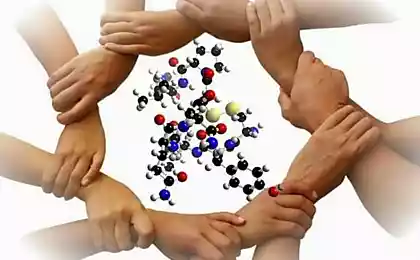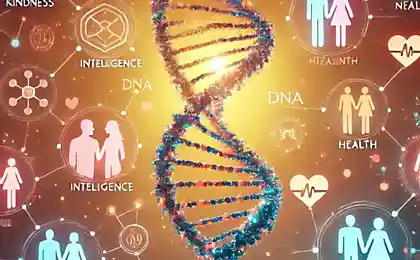150
7 Signs You Have Been Infected With Toxic Behavior From Other People

Toxic behavior isn’t just for people we usually call toxic. Sometimes the “infection” with negative patterns of communication and response occurs almost imperceptibly: we copy the same patterns as the environment, and do not notice how we begin to “poison” the atmosphere around us. It’s easy to get these habits, because the human brain is evolved to imitate in order to accelerate learning and adaptation in social groups. But if it is not recognized in time, you can seriously complicate your life and cause discomfort to loved ones and colleagues.
It’s important to understand that toxic behavior isn’t just about overt aggression or manipulation. Sometimes it manifests itself in subtler patterns: endless complaints, passive aggression, dramatization of trifles. Such behavior can undermine trust and respect in a relationship, and a person who unwittingly broadcasts it risks being misunderstood and alone.
In this article, we’ll look at seven signs indicating that you may have already picked up toxicity contagions from your environment or past experiences. We will try to avoid superficial cliches, but turn to what psychologists and practitioners say: how these signs manifest themselves in life, what they lead to and what can be done to get rid of such habits. The material is aimed at a wide range of readers seeking a more conscious and harmonious relationship with themselves and the world.
Main part
1. Frequent complaints about “universal injustice”
The constant feeling that everything is bad and the whole world is against you is a classic manifestation of toxicity. But for some people, this becomes a kind of “unconscious habit”: when faced with such complainers, they adopt the model of considering any circumstances a “conspiracy” against themselves.
- Symptom: You're increasingly using phrases like, "I'm always like this," "nothing good will work," "nobody cares."
- Why is it dangerous? This brain tuning leads to inattention to real possibilities and drives into a chronic pessimistic state.
- Antidote: Notice the specific facts of your life that refute the idea of “everything is bad”; keep a diary of achievements and gratitude.
2. Sarcastic or dismissive attitude towards others’ successes
Ask yourself, “When someone talks about their achievement, how do I react?” If you catch yourself thinking like “Oh, well, this is a trifle, it could have been better” or “And what to brag about?”, you should think, is not “stick” to you the habit of devaluing the success of others. This is often the case if you’ve been in contact with people for whom other people’s victories are a cause for envy or competition.
- Signal: internal irritability or the desire to prick a person who is “too happy”.
- Risk: The reputation of the “eternal critic” is built, people stop sharing positive news, which means that contact with you weakens.
- Recommendation: Learn to sincerely rejoice for others, notice that the successes of others do not detract from your own.

3. Passive aggression and “acute” hints
The classic toxic model: not to express discontent directly, but to sprinkle pranks, sarcastic remarks, veiled reproaches. You may have adopted this style from a person who avoided open conversations and preferred to “get out” of the crowd.
- Examples: “Your mind could have guessed...”, “Well, you know how you usually ruin everything,” is said in a semi-playful tone, but with a clear negative background.
- Why it's destructive: Partners or friends feel that you are unhappy, but do not understand what the problem is, emotional tension begins.
- Council: If you do not like something, speak directly, but with respect. Expressing emotions is not a crime; tone and sincerity matter.
4. Being overcritical of yourself and others
Where does the constant criticism and criticism come from? Often this is inherited from the close environment: parents, colleagues, friends, who all the time “corrected” and pointed out the shortcomings. As a result, a person begins to think in the paradigm of “finding a flaw”.
- Symptom: You only notice mistakes, and achievements — “whatever, it’s okay.”
- Result: loved ones will feel that it is impossible to please you, and your health will depend on an unattainable ideal.
- Switching: Find a balance between constructive feedback and recognition. Dosed praise and support is the key to a healthy relationship.
5. Striving for permanent drama (dramaquin effect)
In some social circles (or families), drama is the norm. Constant scandals, suspicions, resentments for no reason. If you suddenly notice that you begin to “start” with half a turn and require increased attention to yourself through the negative, perhaps you involuntarily adopted this pattern.
- Sign: Unreasonably inflate small problems into catastrophes to attract attention or elicit sympathy.
- Implications: People start avoiding you for fear of getting involved in a soap opera. You're losing trust.
- What to do: Notice when your aroused state is out of proportion to the situation and learn calm ways to communicate.

6. The constant need to be a victim
The role of “victim” is one of the most common forms of toxic behavior, based on the belief that a person is “always hurt” and has no power to change anything. And if your parents, friends, or partners constantly complain that “the whole world is against them,” chances are you’ve adopted a similar pattern.
- Symptoms: You often say, "I can't do anything, everything is decided for me," "This is the fate," "Everyone around is guilty."
- Problem: You shift responsibility to circumstances, losing initiative and falling into a vicious circle of complaints.
- Decision: The first is to recognize one’s role in many life events; the second is to learn to act, not just react.
7. Distrust of the world and anticipation of a trick
If you lived in an environment where suspicion prevailed (e.g., “all liars,” “no one can be trusted”), over time, that perception can become your own filter of reality. You begin to see enemies where there are none, and to perceive any gestures of kindness as “another trick.”
- The situation: A new acquaintance offers help - you suspect that he needs something from you, although the facts do not confirm this.
- Threat: It is possible to remain isolated without valuable alliances and human warmth.
- Balance: Reasonable caution is useful, but total distrust hits you too - learn to understand the nuances, not "all or nothing."
Conclusion
Other people’s toxic behavior can “infect” us like a virus. We adopt mental attitudes, speech patterns, and response styles—sometimes unconsciously, out of habit, or because we were raised that way. But the good news is that once you understand the problem, you can break the cycle.
The key step is to recognize that some of our actions and words can be harmful to ourselves and others. Then the analysis goes, "Where did I get this from?" At what point did I start acting like that? What am I doing this for? Honest self-talk, sometimes accompanied by a psychologist or thoughtful conversation with a close friend, helps to remove the "blinkers" and regain your own voice, rather than reflecting "toxic patterns."
Noticing one or more of these seven traits in yourself, don’t panic or be ashamed: Accepting reality is the first step toward positive change. Any behavior is a set of habits, and if you can “accept” toxicity, you can get rid of it. It’s important to work on yourself consistently, replacing negative patterns with healthier options. For example, instead of sarcasm – direct honest communication, instead of the role of “victim” – active participation in your life decisions.
Remember, no one is immune to the environment. But it is in our hands that we have the right to choose which values and attitudes to nourish our lives, and which viruses to weed out and question. This is the key to staying psychologically healthy, confident, and benevolent, both to yourself and others.























